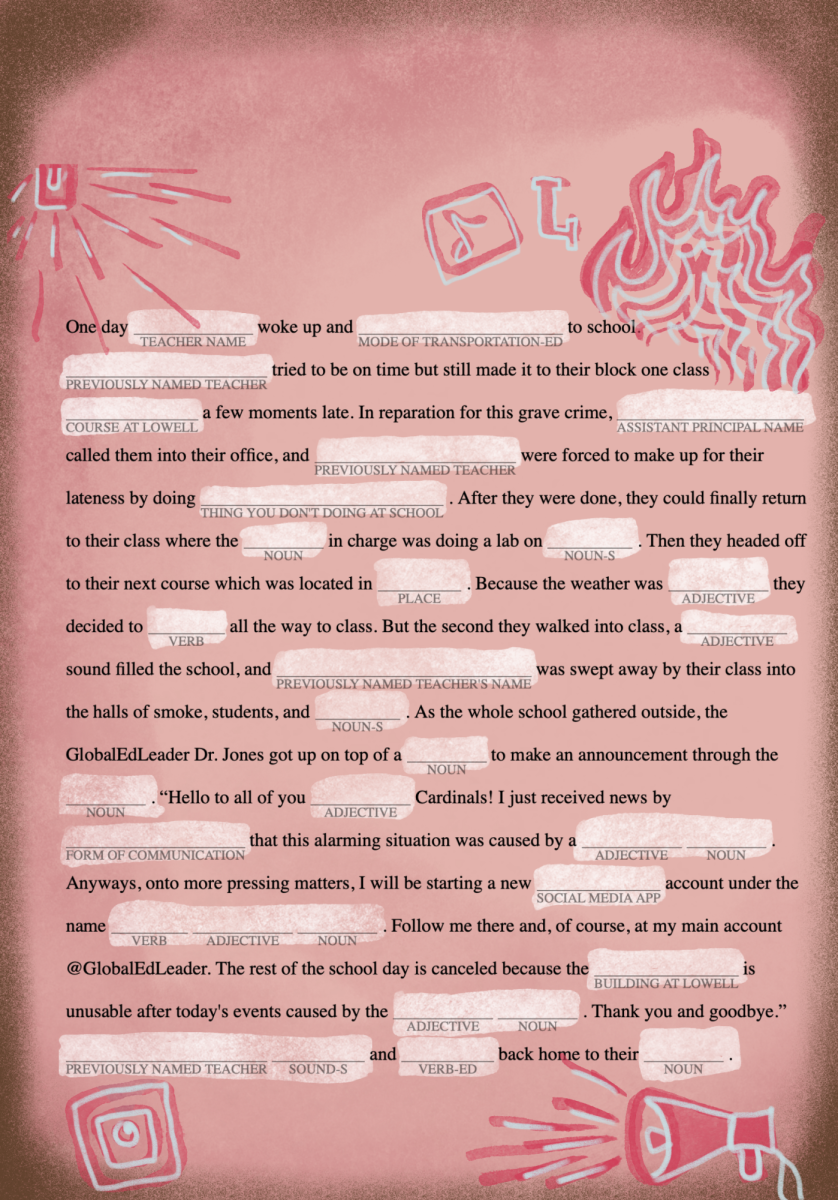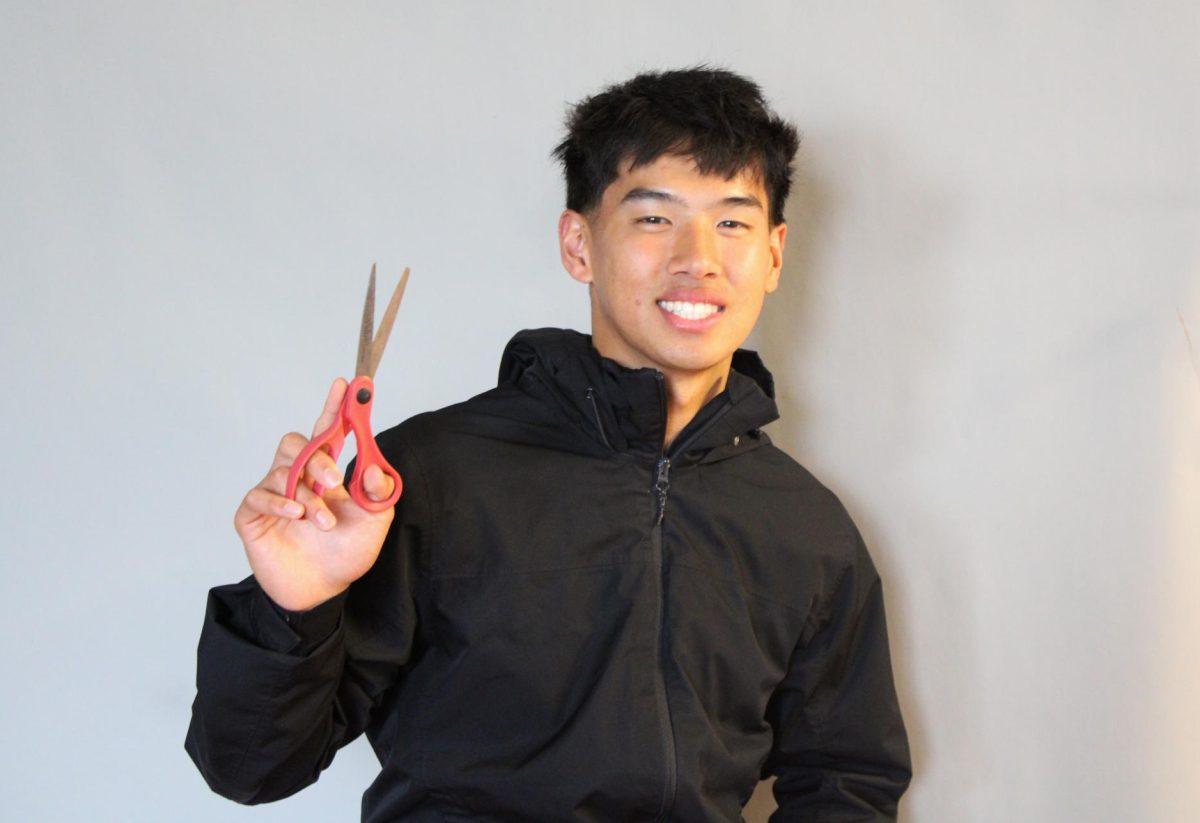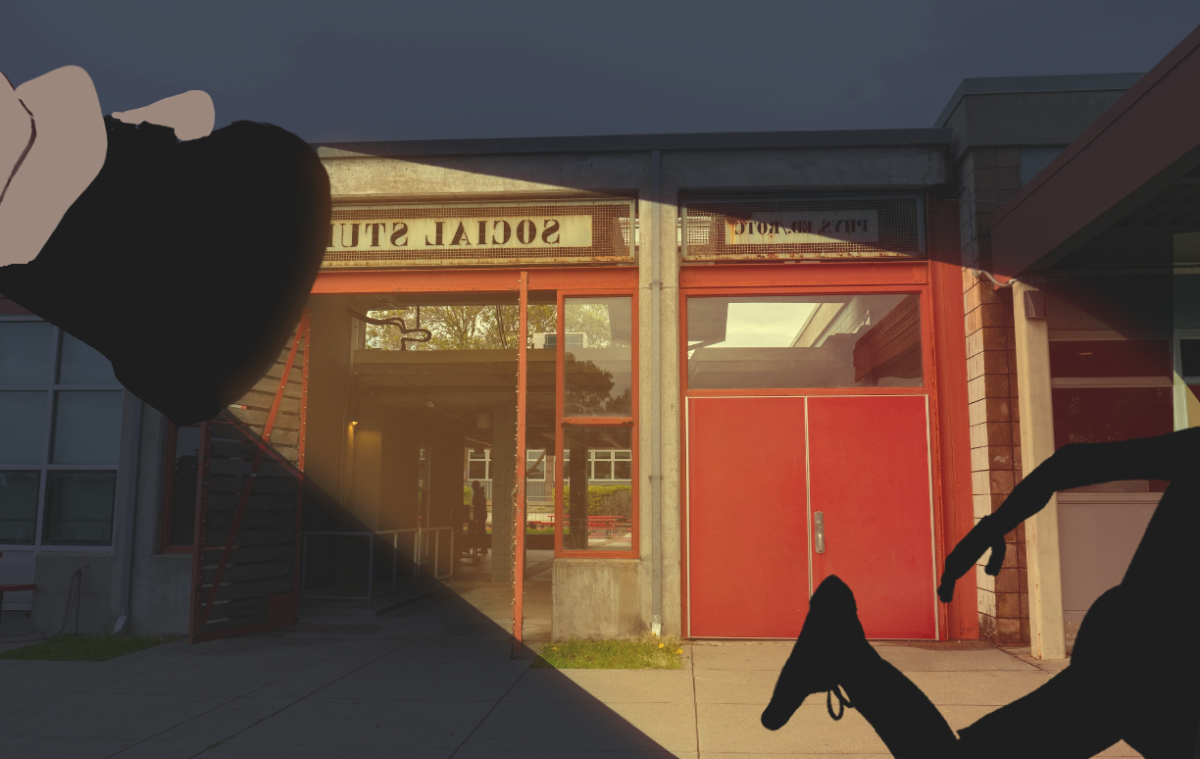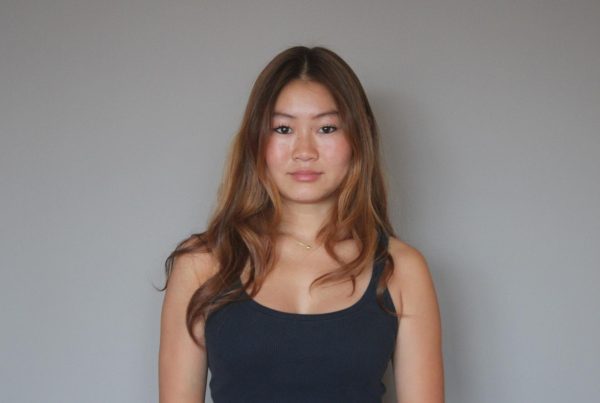When senior Reem Rahmaoui heard that the Supreme Court overturned affirmative action in colleges, her relaxing summer day quickly faded into one filled with panic. Rahmaoui, who considers her North African and Arab descent to be a compelling component of her self-expression and identity, was flooded with frustration.
Why should college admissions be “race-blind” in a society that’s not? Rahmoui wondered, echoing Supreme Court Justice Ketanji Brown Jackson’s dissent to the court case that overturned the policy. On June 29, 2023, the Supreme Court struck down the use of race-based affirmative action in college admissions through the Students for Fair Admissions v. Harvard ruling.
Whether it’s applying for a job, college, or the military, affirmative action policies are an attempt to ensure equal opportunities by highlighting underrepresented applicants. In higher education, affirmative action is the practice of considering students’ race as a factor when deciding whether to admit an applicant. These policies date back to the Civil Rights Act of 1964 and an executive order in 1965. According to the Economic Policy Institute, these programs were established to amend America’s “history of race-based exclusion, legally enforced segregation, and quota systems”, which had prevented minority students from attending colleges. However, in the past several decades, many have been critical of affirmative action for doing the opposite – unfairly using race in considering student admissions.

Until the ruling of Students for Fair Admissions v. Harvard this past summer, the Supreme Court held a standing precedent that race may be considered in a holistic admissions process. However, the ruling means that applicants can no longer directly list their race on their applications. Students can discuss their race through essays, but schools cannot use race in their decision-making process.
Lowell students have expressed mixed opinions about the overturning of this policy. Some, like Rahmoui, are left to anxiously wonder if the removal of affirmative action policies is a step back for equity in American higher education. However, many others are satisfied, believing this decision benefits students who wish to have their merits accounted for and not hindered by any mention of race. As many seniors approach this fresh application cycle with a new lens, they are left to sort through a swamp of conflicting opinions and guidance.
According to an anonymous survey of 132 students that was administered by The Lowell on Sep. 20, a large portion — 40.9 percent of students — stated that they do not support affirmative action. Of these students, junior Maxwell Liu believes that the use of race as a measure of disadvantage is not an effective method of leveraging aid to underprivileged students. “I think that race is not a perfect gauge of disadvantage,” he said. “If there is to be real equality, race shouldn’t be considered.” Similarly, senior Win Neubarth agrees that however idealistic they may sound, race-conscious policies are ultimately not beneficial for all students. “While I agree with the premise that disadvantaged people should have a better option for college, if that means that it ends up putting other people down – which affirmative action does – then it should not be a policy,” he said. Neubarth believes that including an applicant’s race strips applicants of their actual merits. “It can deny a lot of people admission to the college of their choice, even after working so hard. So a lot of qualified people just don’t get in,” he said. “That alone can be devastating.”
I think that race is not a perfect gauge of disadvantage. If there is to be real equality, race shouldn’t be considered.
For many of these students, there is a shared sentiment that affirmative action discriminates against Asians and Asian-Americans in admissions to top colleges and universities. Daniel, a senior under a pseudonym, fears how college admissions would perceive his application if he were to tick a race check-box. “I’m Asian. I’m a male. I’m not a first-generation college student, and both my parents make above the poverty line,” Daniel said. “[Admissions officers] would think that I’m a dime a dozen — that they can find a million people like me, but maybe slightly better.” Liu agrees with Daniel, voicing concerns that affirmative action perpetuates higher academic standards for Asian applicants compared to their non-Asian counterparts. Data from Princeton sociologists Thomas Espenshade and Alexandra Radford’s book A National Study of College Experience quantifies that a student who self-identifies as Asian will need 140 SAT points higher than white students, 320 SAT points higher than Hispanic students, and 450 SAT points higher than African American students. “That’s directly disadvantageous to me,” Liu said. Thus, Liu and Daniel see the recent ruling as a beneficial step towards a non-discriminative, merit-based process “purely based on who is the most fit for [admission],” said Daniel.
On the other hand, 25.8 percent of Lowell students support affirmative action, feeling that it is beneficial and should remain in practice. Rahmaoui believes that policies providing historically disadvantaged groups with equal opportunities to access higher education should remain in effect. She argues that since its implementation, affirmative action’s purpose has stayed true: leveling the playing field for marginalized communities. “Colleges want more diversity in their campuses, but also
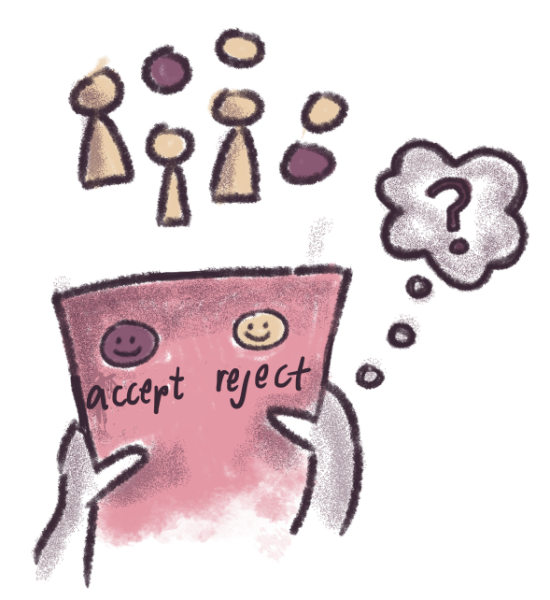
to create more opportunities for people who aren’t as represented, like African Americans and other groups,” Rahmoui said. Additionally, senior Asa Metzel champions affirmative action as a way of reconciling disparities in student backgrounds by providing historically disadvantaged communities with a fair chance at admission. “Not giving these certain groups more of a preference for getting into college ignores the fact that more privileged groups already do have a preference of getting into college because of the way they’re raised,” he said. “[Affirmative action] is a way to remedy the real differences in our society and the way it treats different groups.”
Among these advocates, many students of color believe that having colleges acknowledge students’ races on their application files is not only important, but also beneficial. As a Latina, junior Maren Boigon believes that mentioning her Latinx roots in her application would be advantageous to her. Though she recognizes that applications continue to be holistically reviewed, she believes that acknowledging her race means acknowledging her difference in society and what she may contribute to colleges. “I would have listed that I am Latina because it is important that colleges consider diversity and consider the background of each applicant,” she said. Rahmoui, who described being “pissed” at the Supreme Court ruling, has a similar thought process. “I am a minority here in the States. For most of the campuses that I’m interested in, they all promote diversity and inclusion,” Rahmoui said. “If race still played a role in the application, I think mentioning that I’m actually different would have definitely helped, maybe even given me a higher chance of getting in.”
The system is just making [people of color] go against [people of color]. This is not okay.
Altogether, both students in support and opposition of the ruling continue to believe the current state of higher education admissions is flawed. Neubarth and senior Fiona Ma argue that the overturned policy gives rise to several issues, including the fact that upper class applicants continue to have an advantage within the system. “It still gives people like white people and people who have access to tutors — people with a higher socio-economic background — a better chance to get into college,” Neubarth said. According to Ma, taking away affirmative action draws attention to whether applicants of color are qualified, rather than addressing the fact that privileged applicants remain at the top of the ladder. “This should not be an issue of whether people of color are qualified to be on campus,” Ma said. “The system is just making [people of color] go against [people of color]. This is not okay.” Students who strongly disagree with the ruling, like Ma, view it as another obstacle in achieving an equitable American higher education system.
For Lowell seniors, the removal of affirmative action has altered their approach to the college application process. Students like Neubarth and Daniel believe that the removal will ease their application process, as they no longer find themselves concerned about whether their qualificatio

ns are being discounted on the basis of their race. According to Neubarth, he feels less worried about his college applications now compared to when affirmative action was standing. “I know that I’m not going to be disadvantaged because [my race] is something outside of my control,” he said. Similarly, Daniel expressed feelings of increased optimism about his college acceptance prospects now that race is no longer considered. “It makes me feel more confident in applying,” he said.
However, for students like Rahmoui, the decision has required her to create a new roadmap for the application process, presenting an additional challenge to navigating applications. After affirmative action was overturned, Chief Justice John Roberts warned students against thinking that the application essay could be used as a surreptitious means of including race on applications, stating, “What cannot be done
directly cannot be done indirectly.” Taking a route that many students may not, Rahmoui will disclose her experiences with her racial identity through college essays. “I do consider it a part of my background that can’t just go unnoticed. I’ve had my own circumstances and my own experiences due to my skin color, and I feel like that’s worth noting because those experiences did affect me,” she said. “I think the admissions officers should know that because it may tell them the type of person I am.”
I’ve had my own circumstances and my own experiences due to my skin color, and I feel like that’s worth noting because those experiences did affect me.
The Supreme Court’s removal of all affirmative action policies in higher education has provoked strong emotions among Lowell students. For Rahmoui, she recognizes the controversial nature of affirmative action, and remains discontent, worrying about its consequences. “What if universities just keep admitting the same students, like white people? How are they also going to create equal opportunities for people of all races if they don’t know their race?” she said. Neubarth, who acknowledges all sides of the argument, encourages students to be open-minded during discussions regarding affirmative action, whether to gain perspective or to learn about their own stance. “Talking to people can be helpful for developing your own position, as it did help develop mine, but it’s important for people to be open-minded about this stuff,” Neubarth said. “There’s not really one solid answer to what is in question.”









